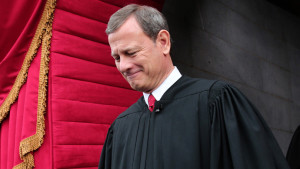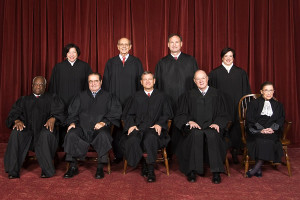How about that John Roberts?
The chief justice of the U.S. Supreme Court has rebuked the U.S. Senate — here it comes — for playing politics with the appointment of the next justice on the nation’s highest court.
Chief Justice Roberts did not know he was doing so when he made the remarks, as they came just a few days before the shocking and tragic death of Justice Antonin Scalia.
He noted the partisan nature of the votes for recent appointees to the court. According to the New York Times: “Look at my more recent colleagues, all extremely well qualified for the court,” Chief Justice Roberts said, “and the votes were, I think, strictly on party lines for the last three of them, or close to it, and that doesn’t make any sense. That suggests to me that the process is being used for something other than ensuring the qualifications of the nominees.”
The court, of course, has a vacancy to fill. President Obama has selected D.C. Circuit Court Chief Judge Merrick Garland to fill the seat. Senate Republicans say they want the next president to make the call, denying the current president the opportunity to fulfill his constitutional responsibility.
Chief Justice Roberts, served with Garland, surely must believe his judicial colleague is as “extremely well qualified” as justices Alito, Kagan and Sotomayor — whose confirmations were approved on largely partisan votes.
Roberts is on point with his call to consider these nominations on the merits of the individual’s qualifications.
No one has heard hardly a whimper from anyone questioning whether Merrick Garland is qualified to determine the constitutionality of federal law.
The opposition is being mounted for purely political reasons.
John Roberts says such posturing should stop.
I happen to agree with him.
As the chief said in his remarks preceding Scalia’s death: “We don’t work as Democrats or Republicans and I think it’s a very unfortunate impression the public might get from the confirmation process.”


